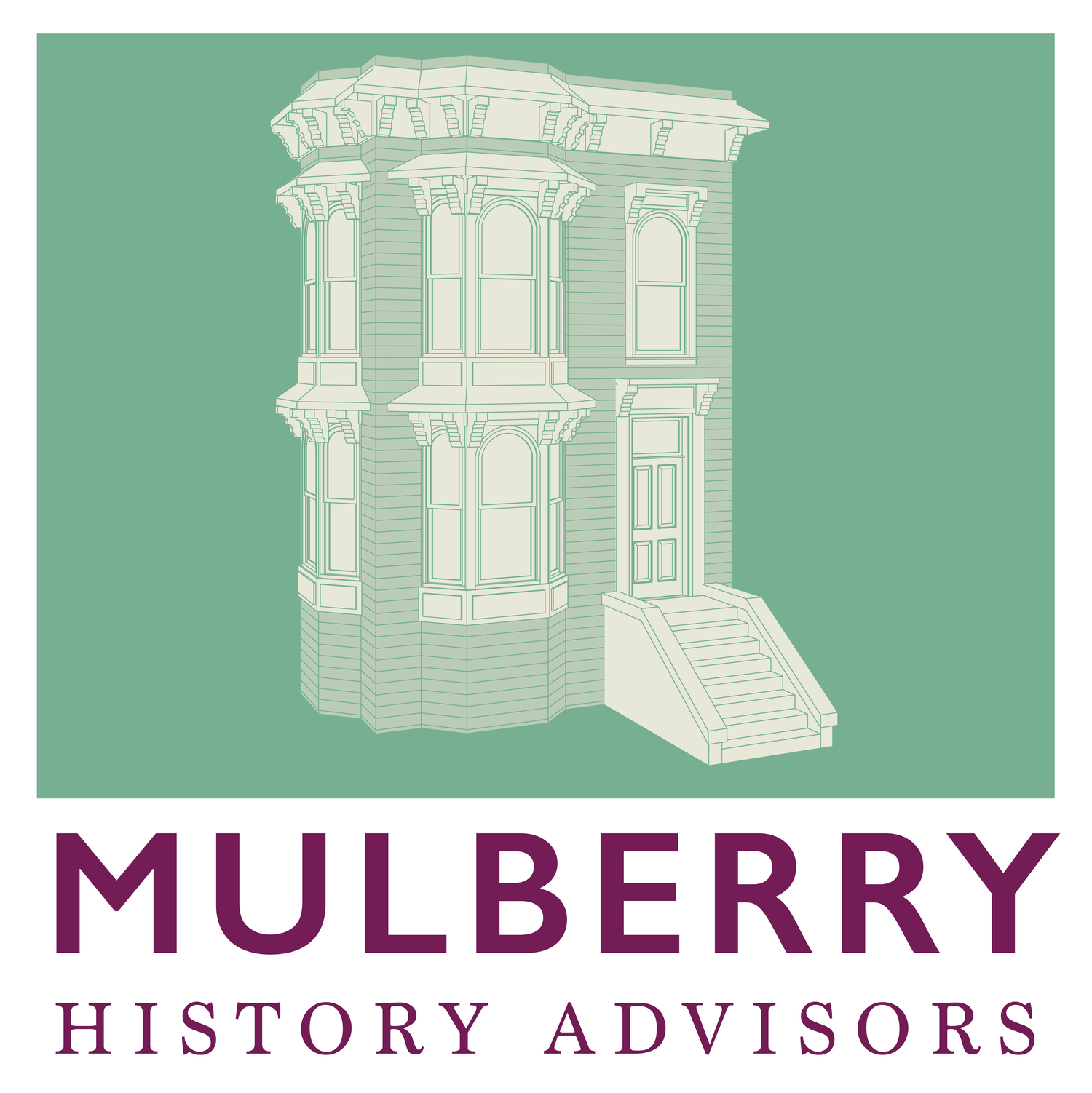Primer on Section 106 Response Transcript
Hi, I’m Jacqueline Drayer, owner and principal of Mulberry History Advisors. We are proud to be the first company to offer advising on Section 106 specifically for local stakeholders known as consulting parties.
Every day municipal governments, tribal governments, and nonprofit organizations across the United States are notified about federal activities that may impact historic properties. Until recently, notifications were infrequent in most places. However, the race to develop small cell infrastructure, better known as 5G, has dramatically increased these notifications.
Every federal agency must consider the effects its undertakings may have on historic properties. Undertakings include activities where federal money is used, and where a license or permit is granted. An important goal of this process, called Section 106, is to avoid or mitigate adverse effects on historic properties. Part of how federal agencies and their applicants accomplish this is by seeking local stakeholder input. Without local stakeholder response, important architectural, archaeological, and landscape features may be compromised or lost.
The torrent of 5G undertakings requiring Federal Communications Commission licenses means that:
Governments and organizations unaccustomed to participating in this process are suddenly asked to respond to highly specific requests on tight timelines.
Even experienced respondents may receive more requests than they have the capacity to respond to.
FCC applicants – who are cellular network corporations – hire consultants to manage this process for them. Governments and nonprofits can benefit from expert guidance too. Yet until now, it has never been widely offered.
I started my career in the public and nonprofit worlds. After going on to facilitate Section 106 consultation on behalf of FCC applicants and HUD lenders, I saw a need to offer advising services to the public and nonprofit sectors. That led me to create Mulberry History Advisors, LLC. I believe in leveling the playing field for municipalities, tribes, and nonprofit organizations.
I have represented those on both sides of the Section 106 process – applicants and local stakeholders. I facilitated consultation for more than 140 FCC undertakings in more than 35 states and Washington, DC on behalf of corporations. I also advised Department of Housing and Urban Development (or HUD) lenders on Section 106 compliance. Specifically, on the local stakeholder side, I have represented nonprofit and municipal government interests in responses to FCC, Federal Highway Administration, Federal Railroad Administration, Smithsonian Institution, and Federal Reserve Board undertakings. I have testified before federal and city governments regarding these undertakings.
The purpose of Section 106 is to ensure that the effects of federal activities on historic properties are identified, and when adverse, avoided or mitigated, in a process that involves municipalities, tribes, nonprofits and other stakeholders. To function properly, these groups must be able to engage and respond. The federal agency or its applicant initiates consultation by notifying consulting parties about the undertakings.
A consulting party is an organization or individual who is formally engaged by the federal agency or applicant throughout the Section 106 process. This includes local stakeholders like municipalities, tribes, and nonprofits. Consulting parties work with the federal agency or applicant to identify historic properties, assess effects, and resolve adverse effects.
Identifying properties involves determining what historic properties may be affected by the undertaking. Consulting party participation is vital at this stage to ensure complete identification. Then the undertaking’s effects are assessed on each property. If any effect is determined to be adverse, it must be resolved through avoidance or mitigation.
An adverse effect occurs when an undertaking may alter characteristics of a historic property that qualify it for inclusion in the National Register of Historic Places, diminishing its integrity.
Local stakeholders like municipal governments, tribes, and nonprofits are the experts on their communities’ historic resources. When they review undertakings, they can identity historic properties, alert the federal agency or applicant to potential negative impacts on them, and recommend how to avoid or mitigate those adverse effects.
If local consulting parties have not raised concerns about possible effects to historic properties, these properties may be compromised or lost. This is true of undertakings from any federal agency. FCC undertakings pose a special challenge because of their frequency and small response window.
Despite its importance, response to FCC undertakings is exceptionally low. I managed public notice and consulting party comment collection for more than 200 FCC undertakings. In my experience:
Nonprofit organizations responded to fewer than 10% of undertakings
Municipal governments responded to fewer than 50% of undertakings
Tribal governments responded most frequently. However, tribes are entitled to additional rights as consulting parties, which are rarely exercised in FCC undertakings.
State Historic Preservation Offices are influential consulting parties in all agencies’ Section 106 proceedings. They care about FCC applicants resolving issues raised by local stakeholders. So consulting parties’ responses carry significant weight.
The Advisory Council on Historic Preservation said in 2018 that budget shortfalls and increased workloads are challenging consulting parties to participate fully in Section 106 reviews. Additionally, not all consulting parties employ staff familiar with Section 106.
Despite the challenge for local consulting parties to respond effectively to these notifications, it is possible. And you don’t have to do it alone.
At Mulberry History Advisors we offer consulting party-focused Section 106 Response Training. We explain the process, recommend strategies for impactful consultation, and answer questions about Section 106. For experienced consulting parties we provide advanced Section 106 Response Training, recommending personalized approaches to improving consultation outcomes and increasing internal review capacity.
We provide ongoing FCC undertaking review services. We also offer individual undertaking advising for activities from other federal agencies.
Thank you for tuning in today. To learn more about the services Mulberry History Advisors offers and schedule a consultation with me, please visit our website mulberryhistory.com. Happy consulting!

